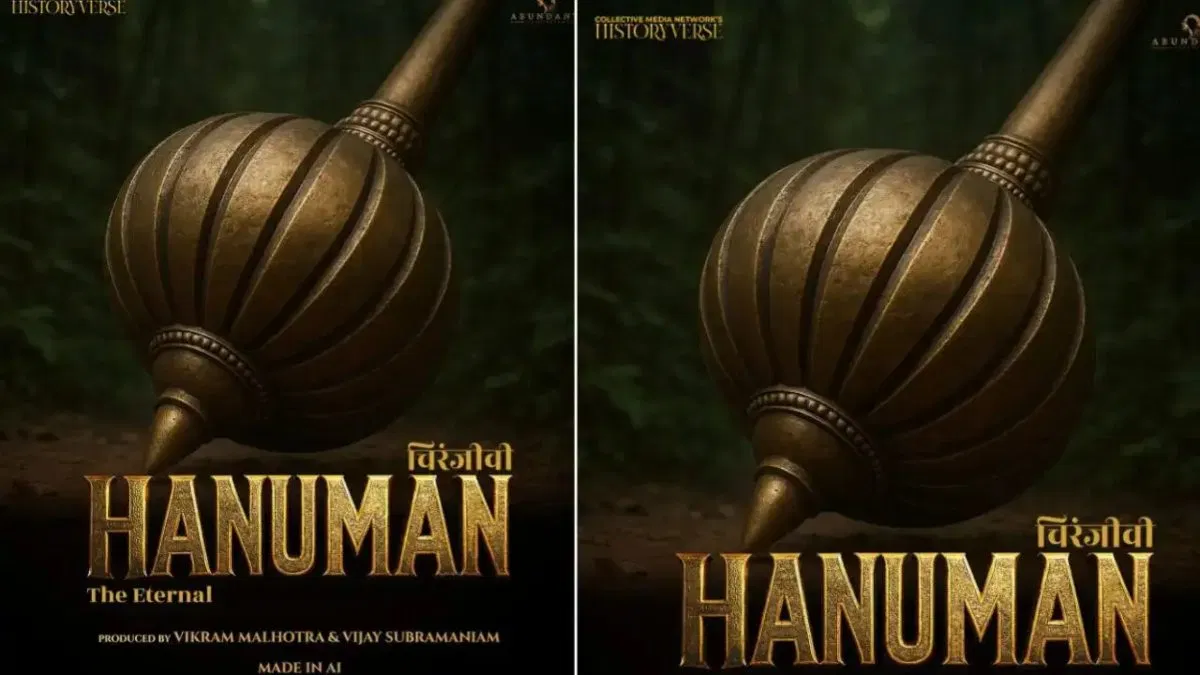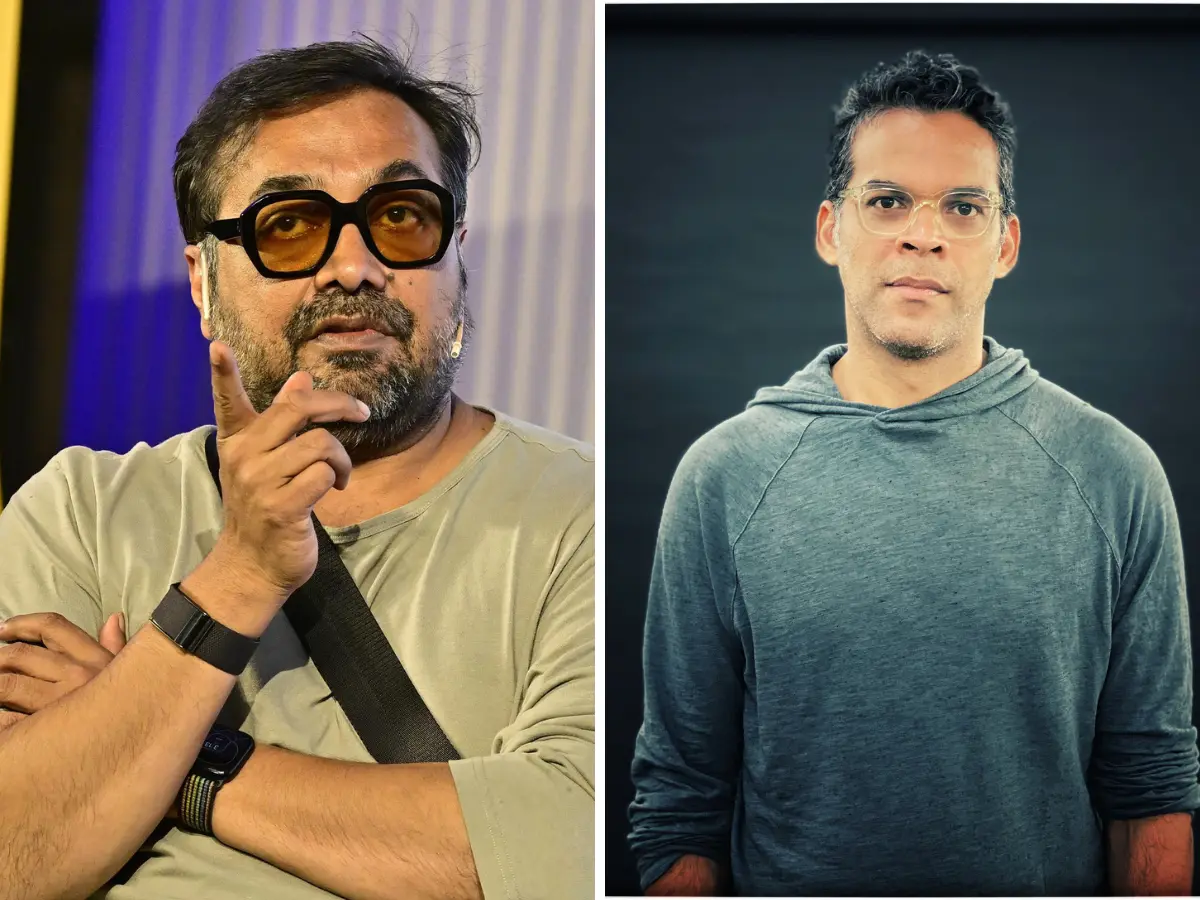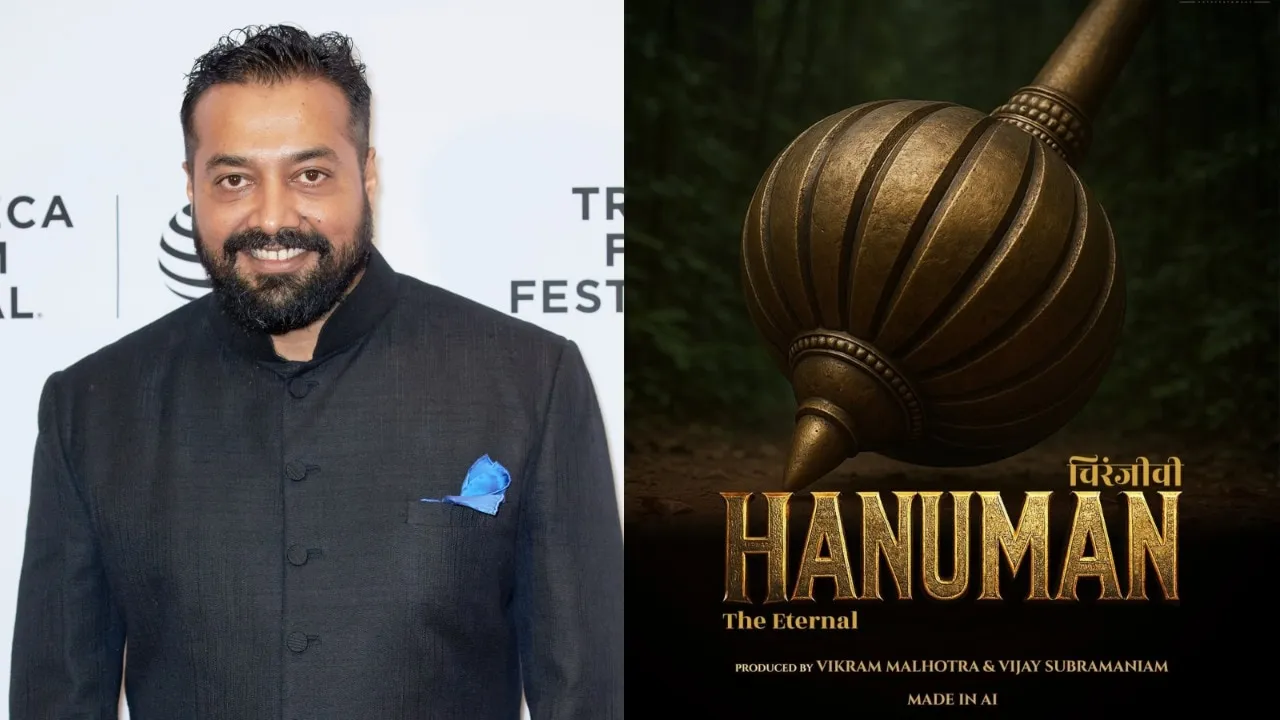

Vikramaditya Motwane ‘scared’ AI film Chiranjeevi Hanuman expected in 2026
The film industry is witnessing a revolutionary yet controversial development: the arrival of the AI-generated film Chiranjeevi Hanuman. Recently announced, the project has already ignited heated discussions across the entertainment world. While some view it as a groundbreaking use of artificial intelligence in cinema, others see it as a potential threat to the essence of creativity and filmmaking.
One of the most vocal critics is acclaimed Indian filmmaker Vikramaditya Motwane, who reacted sharply to the announcement with the words, “So it begins.” His response captured the concerns of many artists who fear that AI-generated films may undermine the craft, emotion, and artistry traditionally associated with cinema.
The Announcement of Chiranjeevi Hanuman
The announcement of the AI-generated film Chiranjeevi Hanuman – The Eternal immediately caught attention for its novelty. The movie claims to be the first fully AI-created feature in its genre, blending advanced technology with mythological storytelling.
According to early reports, the film is designed entirely using AI tools—from script and dialogue to visual effects and character design. This approach bypasses traditional production processes, raising both fascination and alarm within the global film community.
The use of Lord Hanuman, a deeply revered figure in Indian mythology, as the central character further amplified the buzz. By combining cultural storytelling with cutting-edge technology, the film is positioning itself as both a bold experiment and a provocative statement about the future of cinema.
Vikramaditya Motwane’s Reaction
Shortly after the announcement, Vikramaditya Motwane, known for directing acclaimed films such as Udaan and Lootera, shared his reaction on social media with the words: “So it begins.”
Though brief, the statement resonated widely. Motwane has long been vocal about the importance of storytelling, human emotion, and artistic authenticity in filmmaking. His comment is seen as both a warning and a reflection of growing unease among creative professionals.
For many filmmakers, the rise of AI-generated films represents not just a technological shift but a cultural and ethical dilemma. The concern is not simply about jobs or industry disruption—it’s about whether AI can ever truly replicate the human imagination.
The Rise of AI in Filmmaking
AI is no longer a distant concept in cinema. Over the past few years, it has been used to:
-
Generate visual effects more efficiently.
-
Assist in scriptwriting through AI-driven dialogue suggestions.
-
Create digital doubles of actors.
-
Restore old films with enhanced resolution and sound.
However, Chiranjeevi Hanuman represents a step further: an entirely AI-made feature film. This leap raises questions about originality, artistic control, and the role of human creativity in future productions.
Why the Announcement Sparked Debate
The controversy surrounding Chiranjeevi Hanuman stems from several factors:
-
Cultural Sensitivity – Using a revered figure like Hanuman in an AI-generated project raises concerns about authenticity and respect for tradition.
-
Creative Ownership – If a film is generated by AI, who truly owns the story? The programmer, the AI tool, or the production company?
-
Impact on Filmmakers – For directors, writers, and actors, AI-driven films could reduce opportunities for creative expression.
-
Audience Experience – Many fans wonder whether AI can genuinely capture the emotional depth and nuance of human storytelling.
Motwane’s pointed reaction encapsulates these anxieties, reflecting the perspective of artists who worry about being sidelined in a rapidly evolving industry.
Supporters of AI-Generated Films
Despite criticism, the announcement also has its supporters. Advocates argue that AI can:
-
Expand creative possibilities by generating unique visuals and narratives impossible through traditional methods.
-
Reduce production costs, making filmmaking more accessible.
-
Accelerate content creation, catering to the growing global demand for entertainment.
-
Preserve mythological stories by presenting them in modern formats for new audiences.
For them, Chiranjeevi Hanuman is not the end of creativity but the beginning of a new era where human and machine collaboration could redefine cinematic boundaries.
The Ethical Debate in Entertainment
The rise of AI in cinema sparks broader ethical debates:
-
Should AI be allowed to replace human screenwriters, directors, or actors?
-
How can copyright laws adapt to AI-generated content?
-
Will audiences value AI films the same way they cherish human-created art?
Motwane’s reaction highlights the urgency of these questions. While technology will continue to evolve, the industry must decide how to balance innovation with integrity.
The Future of Mythological Cinema
By choosing Hanuman as the subject, the AI-generated film touches upon another sensitive area: mythological cinema. Traditionally, films based on deities and legends carry spiritual weight and require cultural sensitivity.
Critics argue that AI might lack the ability to respect such nuances. For example, the interpretation of Hanuman’s character—his values, symbolism, and role in Indian culture—demands more than algorithms; it requires human understanding and reverence.
Supporters counter that AI could make mythology more accessible to younger generations, sparking renewed interest in traditional stories.
Audience Reactions
Public reaction to the Chiranjeevi Hanuman announcement has been mixed:
-
Excitement – Some fans are thrilled at the technological leap and curious to see how AI interprets mythological storytelling.
-
Skepticism – Others doubt whether AI can deliver a compelling narrative with emotional depth.
-
Concern – A portion of the audience shares Motwane’s worry about the erosion of authentic human creativity.
This divided response reflects a larger societal conversation about AI’s role in art, entertainment, and everyday life.
What This Means for the Film Industry
The launch of Chiranjeevi Hanuman could be a turning point. If successful, it might inspire a wave of AI-generated projects across different genres. If it fails to resonate, it may serve as a cautionary tale about the limitations of technology in storytelling.
Either way, the film represents a test case for the future of cinema. Filmmakers, producers, and audiences alike will be watching closely to see how the project unfolds.
Conclusion
The announcement of the AI-generated film Chiranjeevi Hanuman has opened a new chapter in cinema—one filled with both promise and controversy. While the project showcases the power of artificial intelligence to reshape storytelling, it also raises profound questions about authenticity, creativity, and cultural respect.
Director **Vikramaditya Motwane’s reaction—“So it begins”—**captures the apprehension many artists feel as AI edges further into creative industries. For some, it signals the start of an exciting era of innovation. For others, it is the beginning of a battle to preserve the human heart of storytelling.
As the world waits for Chiranjeevi Hanuman to take shape, one thing is clear: the conversation about AI and cinema has only just begun, and its impact will be felt for years to come.




















